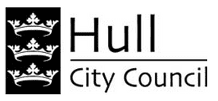Project Summary
The Challenge
Local authorities wanted to fully assess and respond appropriately to the impact of remote working on staff, as a result of the COVID-19 pandemic.
The Approach
Psychologists at the Centre for Human Factors designed a programme of research to explore the nature and prevalence of stress risks facing staff.
The Impact
The research highlighted staff experiences of remote and hybrid working, generating new resources and recommendations to inform future work design.
Project Partners




”The issues we face are national or indeed global. We felt there was a significant opportunity provided through the Department for Levelling Up, Housing and Communities funding and decided to work with the Centre for Human Factors to undertake qualitative evidence-based research to help us understand more about how our workforce is coping with these significant changes to working practices. The wellbeing of our staff is at the forefront of any decisions about future ways of working.
Darren Stevens, Director of Corporate Resources, East Riding of Yorkshire Council

Researchers at University of Hull – Centre for Human Factors are providing vital support to local authorities, to address the challenges caused by changes in working practices resulting from the COVID-19 pandemic. The Centre for Human Factors’ mission is to make work healthier through addressing psychosocial risks to health and safety. This is through the use of evidence-based, pro-active and preventative approaches to tackling issues such as stress and fatigue, using systematic and robust methods of analysis to support organisations in understanding their unique organisational challenges and enabling informed intervention.
The aim of the award-winning ‘Future Work Design’ project was to provide partner local authorities with timely information about the experiences and perspectives of staff regarding the changes to working practices. Local authorities reported a lack of preparation in unprecedented times and significant challenges with transitioning to agile working. There was a commitment to assessing the impact of these changes on staff. The findings of the research would be used to inform the design of future working practices and consider the kinds of resources, training and support that staff and managers may need to support them in developing healthy and sustainable working practices for the future. The project received funding from the Department for Levelling Up, Housing and Communities (DLUHC) via the COVID-19 Local Digital Challenge Fund, awarded in August 2020.
The four participating local authorities, led by the East Riding of Yorkshire Council, covered a large geographical area within Yorkshire and Lincolnshire often referred to as ‘The Humber Region’, which lies on the North and South bank of the River Humber, on the North East coast of England.
The specific challenges addressed through the project included threats to wellbeing, peer relationships, the home working environment and separating work and home life. The intentions were to generate new knowledge about the impact of new working practices on staff, to develop a new risk assessment tool for managers and provide a scalable project which could be adopted widely by other local authorities.


A collaborative team consisting of four local authorities in the Humber region teamed up with psychologists at the University of Hull. The Centre for Human Factors had developed strong relationships with the local authorities through previous work. The local authorities valued the opportunity to work with an external organisation in order to produce independent, professional research. Funded by the Department for Levelling Up, Housing and Communities (DLUHC), the work aimed to consider the experiences of staff in adapting to the changes to working practices, with a view to using the information to inform work design for the future.
A series of 32 focus groups were carried out, with over 300 participants from a range of services, representing a wide sample of roles across the four local authorities. The data collected provided a substantial body of qualitative evidence to support the decision making of local authority recovery and forward planning teams, including the four local authority partners and wider national authorities. The project delivered three outputs: a qualitative report, presenting the breadth of issues and experiences from local authority staff, a series of Working Practice Profiles presenting issues of relevance to specific role types, and a bespoke remote working survey tool to enable the measurement of stress risks within the remote working population.
”The Future Work Design addresses a major challenge for all local authorities in a creative and purposeful way. The work is hugely replicable and should become the norm for all organisations.
Local Government Chronicle (LGC) Judges

Partner local authorities said that the work had:
- Significantly raised organisational awareness of key stress risk issues.
- Helped fill a significant knowledge gap amongst the leadership team.
- Led to a refresh and re-design of key organisational strategies.
- Led to the production of guidelines and documents to protect staff wellbeing. and informed programmes of work to support workers and managers.
- Across these organisations, over 10,000 staff have been positively affected by this.
- One of the partners saw a 100% increase in staff accessing the Employee Assistance Programme in the months following the roll out of the survey and phase 1 impacts – evidencing an increased awareness of mental health and proactive management of wellbeing at work.
The team is committed to ensuring the scalability of the work nationally, and to maximising the benefits for local authority employees nationwide. To that end, they have been regularly blogging and delivering webinars to national Organisational Development, Human Resources and Health & Safety networks. The dissemination activities have been effective in increasing awareness of the research; in a recent survey of Heads of HR in the East of England conducted by the Local Government Association, 72% of respondents said that they had used the Future Work Design project resources such as the White Paper and risk assessment tool .
Webinars to enhance awareness of the tool on the HSE platform continue on a monthly basis – sign up here.
Future Work Design won the award in the Digital Impact category at the Local Government Chronicle (LGC) Awards in 2021. The project was highly commended for the way it addressed societal challenges in a very creative way and demonstrated academic rigour with a focus on diagnostics.
Since the completion of Phase 1 of the project, a two further phases have been funded, enabling the team to further develop the evidence base and resources. Phase 2 of the project brought in Microsoft as a project partner to test existing tools for supporting individuals at work.
Read more about the follow up project here.





